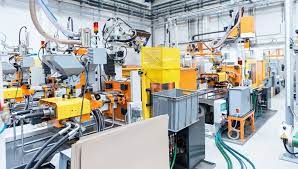Machines have been integral to human civilization, injection moulding machine company transforming the way we live, work, and interact with the world around us. From the earliest tools crafted by our ancestors to the advanced technologies of today, machines have played a pivotal role in shaping our history and driving progress. This article explores the evolution of machines, highlighting key innovations and their impact on society.
- The Early Origins of Machines:
The history of machines can be traced back to ancient civilizations, where simple tools such as levers, pulleys, and wheels were used to perform tasks that were otherwise difficult or impossible for humans. These early machines laid the foundation for more complex inventions, demonstrating our innate desire to innovate and improve efficiency. - The Industrial Revolution and the Rise of Machinery:
The Industrial Revolution marked a significant turning point in the history of machines, ushering in an era of unprecedented technological advancement. Steam engines, textile mills, and mechanized agriculture transformed industries and revolutionized the way goods were produced. This period saw the birth of modern machinery and set the stage for further innovation in the years to come. - The Age of Automation and Robotics:
The 20th century witnessed rapid advancements in automation and robotics, leading to the development of machines capable of performing complex tasks with minimal human intervention. From assembly lines to self-driving cars, automation has revolutionized industries and improved productivity on a global scale. Robotics, on the other hand, has enabled us to explore environments beyond our reach, such as outer space and the deep sea. - The Digital Revolution and the Rise of Smart Machines:
The digital revolution of the late 20th century brought about a new era of smart machines, powered by computer technology and artificial intelligence. These machines are capable of learning, adapting, and making decisions, revolutionizing industries such as healthcare, finance, and transportation. Smart machines have the potential to transform our lives in ways we never thought possible, paving the way for a future where machines are not just tools but intelligent companions.
Conclusion:
Machines have come a long way since their humble beginnings, evolving from simple tools to complex innovations that have reshaped the world we live in. The history of machines is a testament to human ingenuity and our relentless pursuit of progress. As we stand on the cusp of a new era of technological advancement, it is clear that machines will continue to play a vital role in shaping the future of humanity.

